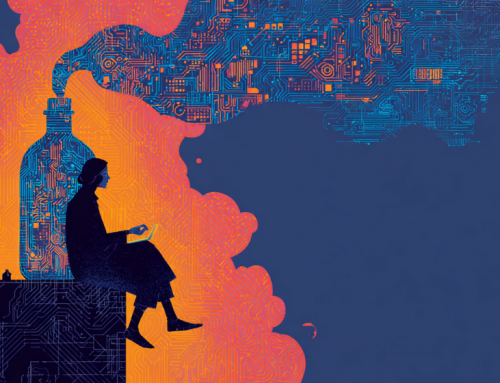
Authorship will be available to all customers, but Grammarly is specifically targeting the education market due to concerns about false positives, where students’ self-written assignments have been incorrectly flagged as AI-generated. (Source: Image by RR)
New Tool Categorizes Text as Human-Written, AI-Generated, or Pasted
As the use of AI becomes more widespread, distinguishing between text generated by a bot and text written by a human has grown increasingly challenging. According to a story in zdnet.com, Grammarly has introduced a new tool called Grammarly Authorship, designed to accurately detect which parts of a document were created by AI versus by a human. Unlike other detection tools that rely on algorithms to identify AI-generated text, Authorship actively tracks the writing process, allowing it to determine whether a text was typed by a person, copied from an external source, or generated by AI.
Grammarly Authorship will initially launch in beta for Google Docs, with plans to expand to Microsoft Word and Apple’s Pages by the end of the year. The tool will be available across all Grammarly plans, including the free version, and will work in both desktop and web versions of these applications. While Authorship will be accessible to all Grammarly users, the company is particularly focusing on the education sector, where concerns about false positives in AI detection have led to disputes between students and educators. Authorship aims to provide transparency by offering detailed analysis of how a document was created, helping to facilitate constructive discussions about the use of AI in education.
The Authorship tool categorizes text based on its origin, labeling it as typed by a human, generated or modified by AI, or pasted from an external source. Users can access detailed analytics that break down these categories, as well as view a color-coded report of the document. For students, Authorship offers an additional layer of protection by ensuring their work meets the required guidelines and providing evidence in cases of suspected AI-generated plagiarism. This tool could play a crucial role in helping students demonstrate their writing process and clarify any misunderstandings related to AI involvement in their work.
Despite the advancements in AI detection tools, achieving near-perfect accuracy remains a significant challenge. Companies like OpenAI have attempted to create similar tools but have faced difficulties with low accuracy, leading to the discontinuation of some products. Whether Grammarly Authorship can outperform existing tools and provide reliable detection remains to be seen when it officially launches next month.
read more at zdnet.com







Leave A Comment